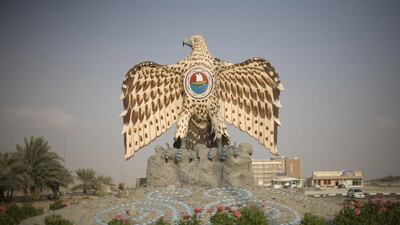For many years, I have enjoyed wandering around in cities, mountains and deserts looking at the ancient heritage of the UAE. I’ve seen most of the country’s most significant archaeological sites. I’ve managed projects to survey and excavate a number of those in the coastal zone of the emirate of Abu Dhabi and I’m proud to be able to say that I have discovered dozens of sites myself – some of very little importance, like little scatters of old pottery deep in the desert, but some that have helped contribute to understanding of the country’s past.
Yet during that process there has always been a worry at the back of my mind. We will never know how many important sites have been destroyed by development before they have ever been formally “discovered” and recorded. There’s not much that can be done about that. My concern, however, has always been that even when sites have been recorded, there’s still the danger that, however important they may be, they can be affected by, or even destroyed by, development. In some cases, such as small pottery scatters, all relevant information can be collected and removed, leaving the way open for development. But in other cases, the information can be lost for ever.
Many years ago, a team from the Abu Dhabi Islands Archaeological Survey paid a first visit to an island in the far west and discovered an ancient settlement, perhaps a couple of thousand years old, with scatters of pottery, bits of imported Roman glass and the visible remains of old walls. It provided good evidence of the way in which the western islands were once a centre of settlement and foreign trade. The team picked up very little, planning to investigate in detail on a subsequent visit. In the event, no return visit was possible for many years. The last I heard was that virtually the whole site had disappeared as a result of construction work. We will never know what information was lost.
Despite pleas from archaeologists and historians, there has been no countrywide legislation protecting such sites – although local decrees in some emirates, in particular Sharjah and Ras Al Khaimah, have provided some protection.
It was, therefore, with delight that I saw last week that the Cabinet had finally endorsed a draft federal law for the protection of antiquities, including sites and movable items. It's been a long time in the making; I have an early version of the draft law that is well over a decade old. It's been necessary to resolve issues such as the respective responsibilities of the local departments of archaeology and the federal government, through the Ministry of Culture and the National Council for Tourism and Antiquities. Finally, though, the law is about to come into force.
There is, of course, much that needs to be done. A list of known sites in each emirate will need to be incorporated into a national database and it will be necessary, too, to determine their relative levels of importance. As a simple rule-of-thumb, a grading from a site of limited local significance (such as a small pottery scatter) to a site of regional and international significance (such as the pre-Islamic Christian monastery on Sir Bani Yas or the towering mound of Tell Abraq, on the Sharjah-Umm Al Qaiwain border) will need to be developed. That will require a massive amount of work.
The new law will also make it an offence to import and export antiquities without a licence. That’s important – too many items of significance for the UAE’s heritage, such as ancient coins, have appeared on the antiquities market overseas.
A local trade in smuggled artefacts from other countries has been going on, under the radar, for years. It’s one of the most lucrative illegal businesses in the world, worth hundreds of millions of dollars a year, often practised by groups with links to human trafficking and terrorism. At a time when, as I have previously noted, important sites in Syria and Iraq are being plundered by illegal diggers working with the likes of ISIL, we have a responsibility as a country to tackle that trade. Again, there’s much to be done.
The new law is only the beginning. I wish that it had been enacted decades ago. Now, though, I, and all those who care about the UAE’s history and heritage, will wish the authorities well as they seek to implement it.
Peter Hellyer is a consultant specialising in the UAE’s history and culture


